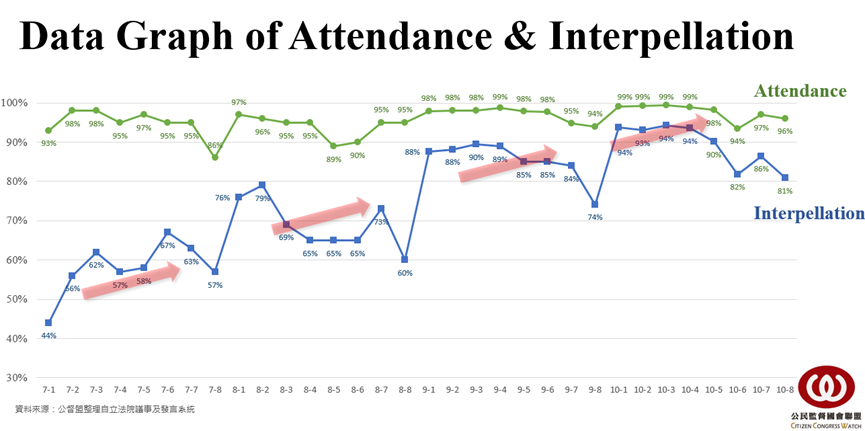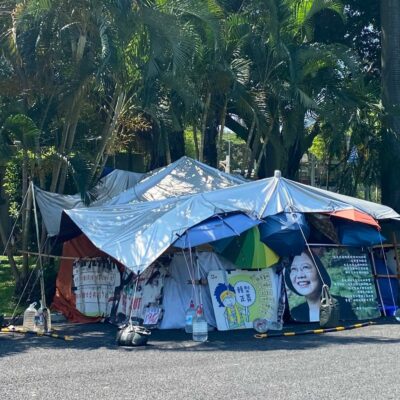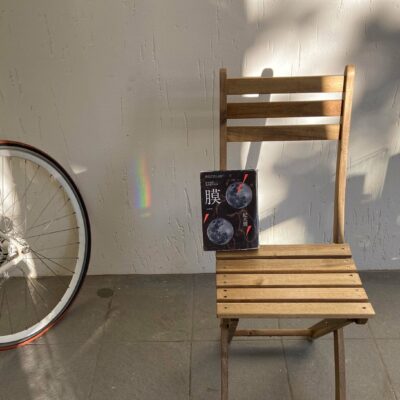Elections are no guarantee of democracy as some recent elections in Asia have demonstrated, such as one-sided elections in Cambodia (2023) and Bangladesh (2024); and Pakistan’s election (2024) where candidates were disqualified from holding political office.
But the emergence of parliamentary monitoring organisations (PMOs) in Asia and elsewhere may be game-changers. PMOs go beyond the immediacy of elections to engage citizens and civil society in the scrutiny of elected legislators and legislative bodies. The success of PMOs in helping a democracy emerge or prevent democratic decline can depend on the individual institutional work and commitment as well as regional or international networking and peer-to-peer sharing among PMOs.
In Asia, Taiwan is one of the nascent democracies emerging from authoritarian control in the 1990s, catching up the global ‘third wave’ of democratisation in the late 20th century. Since the first direct presidential election took place in 1996, Taiwan could be described as a ‘good student’ of democratisation, which is getting consistently higher marks as time passes. In fact, according to the Democracy Index 2023 issued by a London-based Economist Intelligence Unit, Taiwan was ranked first in Asia and 10th globally. However, democracy has been long conceptualised as ever-changing and as a ‘wave’ that can advance or retreat, and parliamentary watchdogs, such as Taiwan’s Citizen Congress Watch (CCW), can and should serve as democratic ‘preservatives’.
CCW’s legislator evaluation system
CCW was founded in 2007 by an alliance of over 50 non-governmental organisations (NGOs), political activists, concerned citizens and scholars in Taipei. Over recent decades, CCW has contributed to deepening Taiwan’s democracy in a variety of ways, importantly, by publishing comprehensive evaluation reports of legislators every six months.
CCW has consistently monitored and evaluated legislators through four terms of the Legislative Yuan for 15 years, and in 2024 the Legislative Yuan embarked on its fifth term. The Legislative Yuan has 113 legislators, who are directly elected for four-year terms. Before each legislative session, CCW makes a public call for citizen evaluators (who must be at least 18 years of age, be citizens of Taiwan and not related to the legislators). The job of the citizen evaluator is to watch a designated video clip of a legislator’s performance and score them. Their scores account for 20 percent of the total evaluation score, while the remaining 80 percent is based on the legislator’s basic performance, such as attendance rates and the proportion of bills and budget proposals. For the past year, CCW has accumulated more than 20,000 citizen evaluators who have performed this task and on average there is 3,000 evaluations per session.
The CCW’s legislator evaluation is based on each session of the Taiwan Legislature. Therefore, an evaluation report is released every six months for public review. The evaluation report not only publishes data on the performance of all legislators but also selects outstanding legislators and those requiring extra supervision. After confirming the evaluation results, CCW holds a press conference to explain the results and organises an award ceremony, inviting the outstanding legislators of that session to receive their awards.
To date, CCW has conducted 32 evaluations over 16 years, significantly improving legislators’ performance and discouraging them from casually missing meetings. Legislators who receive the Outstanding Legislator Award often highlight this achievement in their campaign materials, explaining to voters that their performance in the Legislature has been recognised by CCW, thereby seeking re-election.
Another important aspect of CCW’s work is the compilation and publication of the weekly agenda of each parliamentary committee meeting, highlighting important issues to promote citizen participation, making it easier for the public to track the actions of legislators regarding various issues. Through regular community promotion and educational articles, we aim to empower citizens who care about the core of Taiwan’s politics. The data reflects the overall progress of the Legislature. For example, oral interpellation (a formal request or question from parliament to government) has improved from an average of less than 60 percent in the seventh appointed dates to 90 percent in the tenth appointed dates, demonstrating that the overall legislative environment has advanced significantly due to the presence of the CCW.

The graph data begins at the 7th term, 1st session (2008) ends at the 10th term, 8th session (2023) of the Legislative Yuan. Used with permission from CCW.
In addition, the Legislative Yuan now also offers live and public broadcasting of legislative proceedings; a television channel dedicated to broadcasting the legislature; the promotion of committee meeting transparency, and a requirement that legislators declare benefits that involve conflicts of interest.
The CCW, in collaboration with the g0v (an open source community), also harnesses technology to make legislation more transparent. In each legislative session, nearly 1,000 proposed laws enter the review process, with a single law potentially having 10 different versions proposed by various committee members. In today’s era of advanced artificial intelligent (AI), to provide citizens with a more convenient way to access information and collectively engage in public affairs, the collaboration between the CCW and the g0v has led to the development of several programs for quickly searching for bills and legislator data. These programs, especially, make it easy to distinguish among the various versions of proposed laws put forth by committee members. This collaboration marks a significant step forward in fostering citizen participation in an open parliament (and also enables CCW to produce legislator evaluations more efficiently, saving time and labour costs).
CCW also uses innovative education tools such as developing a board game called ‘No 1 Chungshan South Road (the geographical centre of the legislative process) released in 2021 and hosting a board game competition in collaboration with universities earlier this year. Through role-playing a legislative member in the board game, players reflect on a critical question: ‘What kind of legislative member you want to become?’ The purpose is to empower young people and Taiwan’s next generation of voters by giving them a better understanding of law-making processes in the Legislative Yuan and to use games to increase young voters’ interest in public affairs and policy making.
Capacity building via international peer learning
Importantly, CCW has been monitoring the trend of democratic backsliding in Asia, such as the poor human rights record under the rule of former Filipino President Rodrigo Duterte in the name of the so-called ‘War on Drugs’; the dissolution of Cambodia’s main opposition party by the Supreme Court in 2017 to pave the way for an uncontested 2018 election, described as the ‘death of democracy’ by international media; the military coup d’etat in Myanmar in 2021; and Sri Lanka’s mass protests and mass resignations across the government in 2022.
These shocking democratic crises across Asia provided the impetus for CCW to create an International Affairs Department at the end of 2021( in the midst of facing the challenges of the COVID-19 pandemic) to help more Asian countries to consolidate their democratic institutions.
Since late 2021, CCW’s International Affairs Department has actively participated in various international exchange opportunities. For example, in April 2022, CCW actively participated in an online meeting organised by the National Democratic Institute called ‘Leveraging Transparency to Counter Foreign Illiberal Influences: The Role of Legislatures’; and in March 2022 CCW participated in a meeting hosted by Asia Regional Discussion on Trends and Challenges of Electoral Justice organised by the Indonesian government. CCW also joined the most important election observing organisation in Asia—the Asian Network for Free Elections (ANFREL)—by acting as the 2022 Filipino Presidential Election Observation Mission Delegate and interacted with organisations worldwide including German transparency watchdog abgeordnetenwatch and Argentine democracy promotion body Directorio Legislativo in Argentina.
CCW has shared its experience in enhancing transparency in Taiwan’s legislature and improving the overall legislative review process on numerous significant international occasions. The main points are that:
- Monitoring of legislators and of legislatures produces better government by promoting accountability, participation, representativeness and efficiency.
- Tracking the policy commitments of legislators and fostering ongoing communication and interaction between them and their constituents increases citizen participation.
- The promotion of transparency and openness can lead to positive changes with the legislature itself.
- Civic education enhances participation and political awareness.
Through these exchanges, CCW aims to facilitate collective capacity building of PMOs internationally and promote mutual progress in democratic development.
CCW is calling for international networking of PMOs in Asia
CCW has been actively seeking direct collaboration with similar organisations in Asia. Despite initial recommendations and introductions from various international organisations, ideal partners were not identified since most Asian political environments are not yet open enough to allow for the active development of political watchdogs or PMOs independent of government (although CCW has come to know numerous election observation organisations and open data communities in the Asian region through this process).
In March 2023, CCW along with the Westminster Foundation for Democracy from the UK and the National Democracy Institute from the US, jointly held an international forum on open parliament and monitoring to strengthen parliamentary transparency and accountability through citizen participation. During this forum, parliamentary monitoring groups from around the world were invited to Taiwan to share their challenges and achievements and explore effective ways to oversee legislatures and promote government transparency and accountability.
The forum not only facilitated communication and cooperation among international monitoring groups but also reignited global attention on parliamentary monitoring in the Asian region. Through such international exchange activities, we hope to inspire more civil society organisations in Asian countries to engage in parliamentary monitoring work, promoting the deepening of democratic values in the Asian region and help to prevent democratic decline.
Challenges ahead
Several Asian democracies have already experienced democratic decline. Although we argue that PMOs can have a positive impact, we also acknowledge the following challenges:
- Unlike other regions, such as Latin America which is more culturally homogenous, the political culture and institutional arrangements of Asian countries are distinctively diverse. Therefore, the best practice of parliamentary monitoring in one country might not apply to another national context and pose challenges to the crafting of an universal guideline for PMOs in Asia to follow or to the establishment of an Asian network similar to Latin American Network for Legislative Transparency.
- Democracies in Asia are mostly nascent with long histories of authoritarian leaders, illiberalism, and a lack of good governance past and civic education. There seems to be recent growing popularity for ‘populist strongmen’ in spite of a growing number of democracy watchdogs in the region.
- Although support for democracy remains high, dissatisfaction with democratic performance is also high, especially in Asia’s older democracies including Japan and South Korea. Therefore, there remains room for parliamentary monitoring work to hold legislators accountable across the Asian region, especially in relation to long term structural change, rather than short term improvement.
The democratic backsliding in Asia prompts us to reflect on our political institutions, democratic practice, human rights, and what kind of democratic futures we can image, want and should act upon.
Authors:
– Dr Herlin Chien: Professor at the College of Humanities and Social Sciences, National Pingtung University of Science and Technology in Taiwan; and head of the Taiwan Charter of the Asian Civil Society Research Network.
– James Kan: Vice President of Citizen Congress Watch (CCW), a parliamentary monitoring organization based in Taiwan.
Image: People learning about the legislative process of the Legislative Yuan, by playing CCW’s board game. Credit: CCW staffer. Used with permission of CCW.




